According to a UN Women Report on the impact of COVID-19, it not only had a profound shock on our societies and economies, but the pandemic also underscored society’s reliance on women, exposed structural inequalities across every sphere, from health to the economy, security to social protection. Additionally, it showed that when resources are strained and institutional capacity is limited, women and girls face disproportionate impacts, and hard-fought gains for women’s rights are also under threat.
Closer home, the Graça Machel Trust women networks in Zimbabwe and Uganda had convenings to discuss the impact of COVID-19 on women-led businesses, female representation on Covid-19 response and Economic Recovery, respectively.
The Zimbabwe chapter consisting mainly of members from New Faces New Voices(NFNV) and The Network for African Business Women (NABW) chapter, held their meeting on June 28th at the Cresta Jameson Hotel Harare. In attendance were Charity Mandishona, NABW Board Member, Dr Hesphina Rukato – NABW, Zimbabwe Chairperson (Host), Dorothy Mavhiri – NFNV Country Director, Zimbabwe, Mrs Clarah Mukosera- Head Retail Banking, Zimbabwe Women Microfinance Bank (ZWMB), Dr Shungu Gwarinda, Executive Director, CAMFED Zimbabwe, Mrs Colleta Muzulu- Principal Arts and Culture Officer, Ministry of Youth Sport and Culture and Mrs Julia Mapungwana – Director Programme Management, Ministry of Women Affairs, Community, Small and Medium Enterprises Development.
- New Faces New Voices Country Director Dorothy Mavhiri
- Zimbabwe Women Microfinance Bank, Head Retail Banking Mrs Clarah Mukosera shares how COVID-19 brought some positives for women who got sewing machines to make protective masks.
- Dr Shungu Gwarinda, Executive Director, CAMFED Zimbabwe
- Women from different sectors at the event.
The event focused on reviewing COVID-19 reports, how to develop a rescue package to support women-led businesses impacted by the pandemic and inputs towards developing an advocacy strategy for businesses impacted. These are in line with The Trust’s work to convene, advocate for women’s financial inclusion to help pinpoint areas for policy recommendations and identify public and private sector commitments for follow-up actions.
The report revealed that during the pandemic, The Ministry of Youth disbursed USD10, 000 to various women and girls in the business. However, it was noted that most women’s organizations were said to be not aware of packages in place for women’s development purposes.“Relative to young men, young women experience significantly lower self-confidence and feel that their individual needs and choices must come second to their family duties. They also feel that their career possibilities, including entrepreneurship, are limited by societal pressures on appropriate roles for women. The ministry of youth support girls and young women to build confidence therefore targeted intervention is needed from an early stage hence the need to incorporate them into women’s business networks,” shared Mrs Colleta Muzulu- Principal Arts and Culture Officer Ministry of Youth Sports and Culture.
On her part, Dr Shungu called for investment in enterprise development to increase economic support and help young women set up and grow businesses. This would then lead to creating new jobs and using profits to support more children in school to avoid the risk of early marriages. Some of the business women in attendance called on the government and stakeholders to bring back adult education as older people, especially women, are being left behind in entrepreneurial development. The event ended with a vote of thanks from Mrs Nkomo- Board Member Network of African Business Women in Zimbabwe.
National dialogue on Female representation on COVID-19 response and Economic Recovery
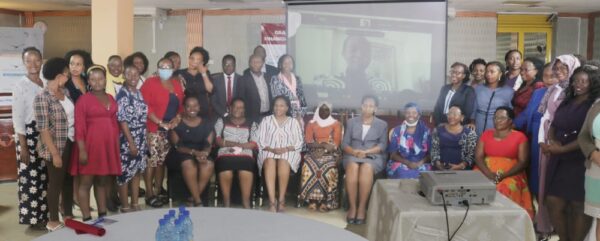
Some of the participants at the convening. Photo Credits; Native TV International.
To mitigate the effects of the pandemic, almost all governments constituted COVID-19 response task forces. In Uganda, the government constituted task forces, under a disaster management framework, at the national, sectoral, district and local levels. The task forces were involved in case management, surveillance, health promotion, resource mobilisation, enforcement of SOPS at all levels and now economic recovery. It has been noted that in Uganda, women were at the helm of the first National Task Force.
The Graça Machel Trust – Uganda Networks, spearheaded by the Network of African Business Women – Uganda Chapter (NABW-U), on 29th June 2022, held a convening of Women Representatives on Covid-19 response and Economic Recovery task forces. The event was held at Hotel Africana in Kampala and was presided over by Dr. Pamela Mbabazi who represented Hon. Mary Karooro Okurut, the pioneering leader of the first Covid-19 National task force. Dr. Mbabazi is the Chairperson of the National Planning Authority, a key institution in shaping national development strategies.
To organise the event, NABW-U worked with other Uganda chapters; New Faces New Voices (NFNV), Africa Women Agribusiness Network (AWAN), and Women in Media Network (WIMN), who are the implementing partners for the GMT Women’s Leadership for Financial Inclusion and Economic Recovery (WLFI) Project. In her speech, the guest of Honour underscored the key role the women of Uganda have played in the management of the COVID- 19 Health Crisis. She thanked the government of Uganda for trusting women to deliver on task forces. It is worth noting, however, that although women have been a major workforce in COVID-19 response, making up to 70% of healthcare frontline workers, they have been extremely underrepresented in government task forces. For instance, a review of 225 COVID-19 task forces from 137 countries by UN Women established that women’s representation was only at 24%. According to Ms Florence Kasule, the Chairperson of NABW, “this underrepresentation negatively affects women’s recovery from the adverse impact of COVID-19 because, without women in decision-making positions, there is a high risk of ignoring women’s needs in the COVID-19 response and recovery measures taken by governments.”
The keynote was followed by a very animated panel discussion where the panel and the audience brought up many issues both. Panelists included: Ms. Amina Lukanga (Kampala Resident City Commissioner – RCC), Mr. Allan Ssenyondwa (Private Sector Foundation), Ms. Violet Kabasindi (Informal Sector workers’ representative in Kampala, Wakiso and Busia,) Juliet Bagaaya (Centenary Bank) and Hope Katwiire (Kampala City Traders Association – KACITA – Women’s League). Ms Katwiine proposed that the Recovery Task forces’ composition should have women from the women’s groups and not just those in political appointments. Ms Beatrice Bbale Nakayiki from President’s Office chimed in, stating that “economic recovery programmes will remain jargon unless the country shifts the discussion to production and productivity.” The networks plan to hold training activities where women representatives on task forces will be trained in lobbying, advocacy skills, and other skills that will make them more effective and accountable to the nation and the women they represent.
The event was also attended by the Graça Machel Trust (GMT) Director of Programmes, Ms Shiphra Chisha. In her remarks, she emphasized the commitment of GMT to improving the lives of African women and children through three main programme areas; Women’s Economic and Social Advancement, Children’s Rights and Education.
This article is a compilation of stories done by Nonhlanhla Ngwenya (WIMN Zimbabwe Comms Coordinator) and Hilda J. Twongyeirwe a member of FEMRITE – Uganda, The Lions Club of Kampala Central, Action for Development, The GMT Women in Media Network and The Pan African Writers Association.



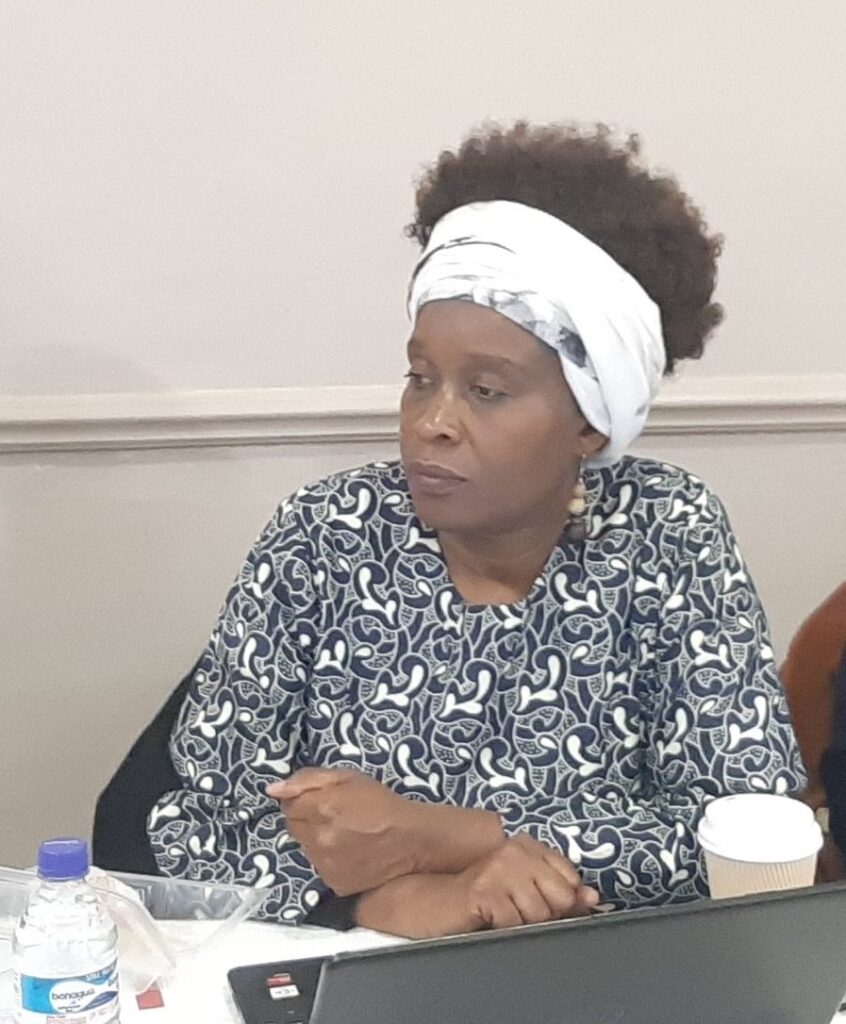
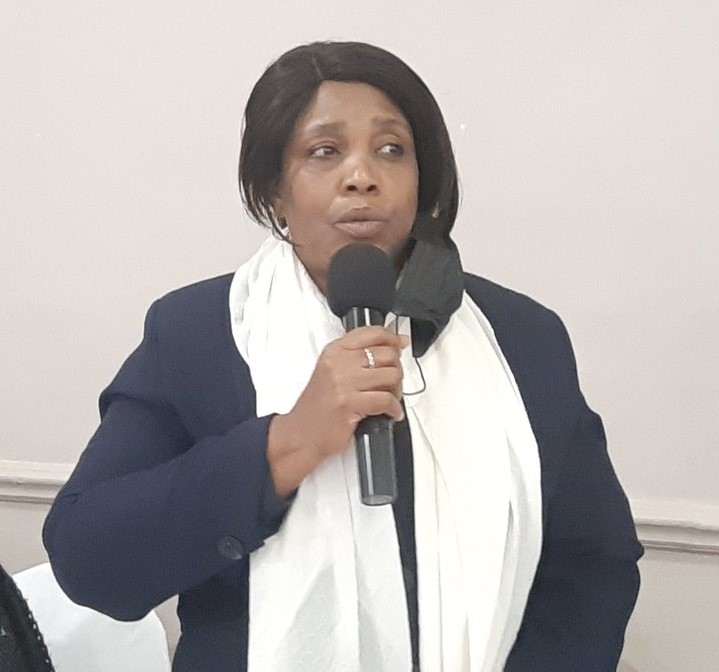
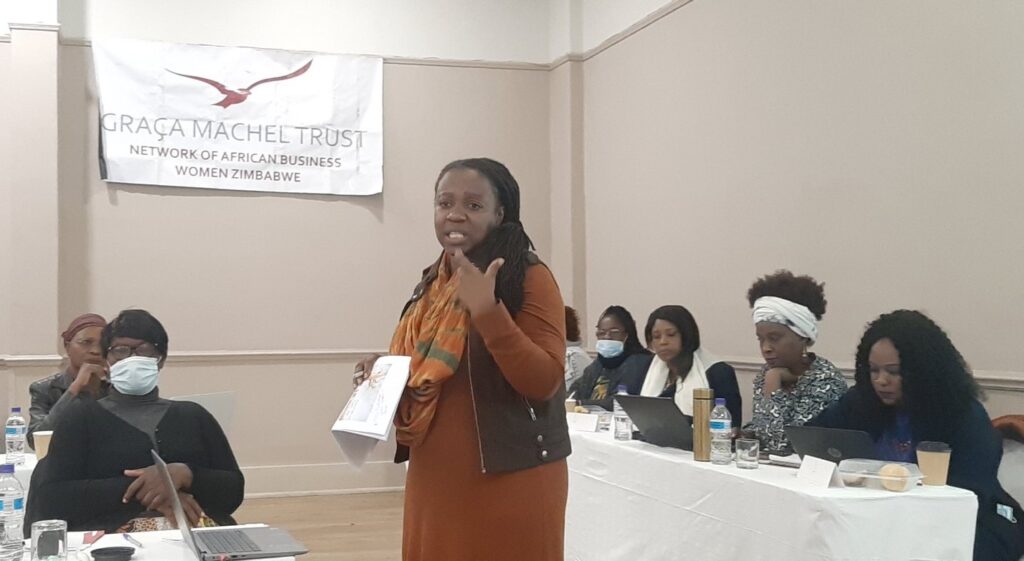
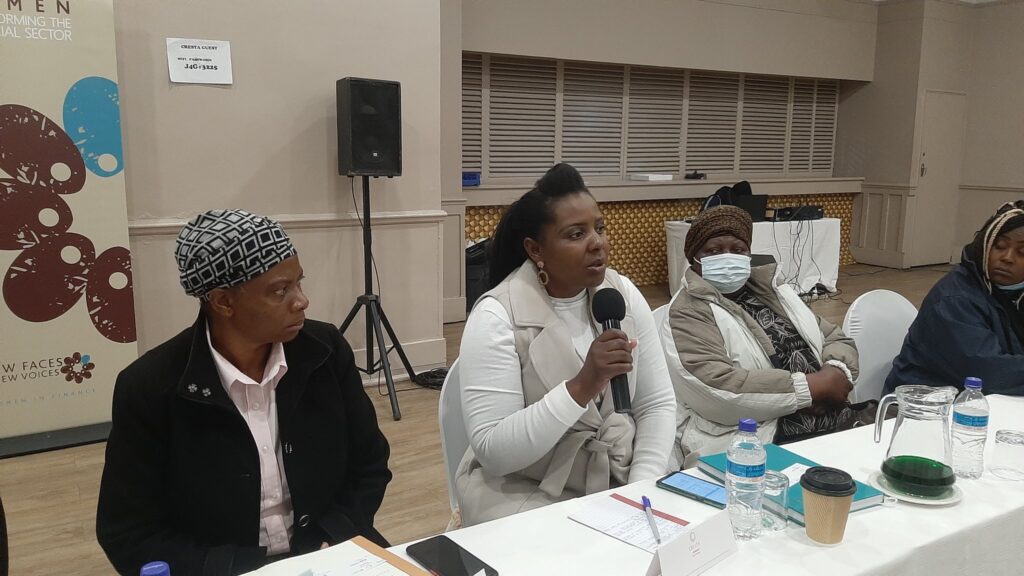







 The Trust supports and mobilises civil society networks on issues of ending child marriage, ending violence against children, ending female genital mutilation and promoting children’s rights, to carry out advocacy and action across Africa. Special focus is placed on Malawi, Mozambique, Tanzania and Zambia where child marriage continues to be a problem largely driven by poverty, gender inequality, harmful traditional practices, conflict, low levels of literacy, limited opportunities for girls and weak or non-existent protective and preventive legal frameworks.
The Trust supports and mobilises civil society networks on issues of ending child marriage, ending violence against children, ending female genital mutilation and promoting children’s rights, to carry out advocacy and action across Africa. Special focus is placed on Malawi, Mozambique, Tanzania and Zambia where child marriage continues to be a problem largely driven by poverty, gender inequality, harmful traditional practices, conflict, low levels of literacy, limited opportunities for girls and weak or non-existent protective and preventive legal frameworks.




 Education is a fundamental right for all children, which is also a vehicle for social, economic and political transformation in communities, countries and the African continent at large. Recent studies indicate a lack of progress in some of the critical commitments aimed at improving education quality, access, retention and achievement, particularly for girls. In most African countries, girls may face barriers to learning, especially when they reach post-primary levels of education. By implementing multi-dimensional approaches to education which includes core education, personal development, life skills and economic competencies, the Trust partners with funding partners, governments, civil societies and the private sector to improve education access.
Education is a fundamental right for all children, which is also a vehicle for social, economic and political transformation in communities, countries and the African continent at large. Recent studies indicate a lack of progress in some of the critical commitments aimed at improving education quality, access, retention and achievement, particularly for girls. In most African countries, girls may face barriers to learning, especially when they reach post-primary levels of education. By implementing multi-dimensional approaches to education which includes core education, personal development, life skills and economic competencies, the Trust partners with funding partners, governments, civil societies and the private sector to improve education access.

 The Nutrition and Reproductive, Maternal, New-born, Child and Adolescent Health and Nutrition, (RMNCAH+N) of the Children’s Rights and Development Programme aims at promoting the Global Strategy for women, children and adolescents’ health within the Sustainable Development Goals (SDG) agenda. The strategy emphasises on the importance of effective country leadership as a common factor across countries making progress in improving the health of women, children and adolescents.
The Nutrition and Reproductive, Maternal, New-born, Child and Adolescent Health and Nutrition, (RMNCAH+N) of the Children’s Rights and Development Programme aims at promoting the Global Strategy for women, children and adolescents’ health within the Sustainable Development Goals (SDG) agenda. The strategy emphasises on the importance of effective country leadership as a common factor across countries making progress in improving the health of women, children and adolescents. Through its Early Childhood Development (ECD) plan, The Trust will seek to put into action the new science and evidence Report that was presented by Lancet Series on Good and early development – the right of every child. This will be achieved by mobilising like-minded partners to contribute in the new science and evidence to reach all young children with ECD. The Trust’s goal is to be a catalyst for doing things differently, in particular, to rid fragmentation and lack of coordination across ECD sectors. In response to evidence showing the importance of political will in turning the tide against the current poor access and quality of ECD. Even before conception, starting with a mother’s health and social economic conditions, the early years of a child’s life form a fundamental foundation that determines whether a child will survive and thrive optimally.
Through its Early Childhood Development (ECD) plan, The Trust will seek to put into action the new science and evidence Report that was presented by Lancet Series on Good and early development – the right of every child. This will be achieved by mobilising like-minded partners to contribute in the new science and evidence to reach all young children with ECD. The Trust’s goal is to be a catalyst for doing things differently, in particular, to rid fragmentation and lack of coordination across ECD sectors. In response to evidence showing the importance of political will in turning the tide against the current poor access and quality of ECD. Even before conception, starting with a mother’s health and social economic conditions, the early years of a child’s life form a fundamental foundation that determines whether a child will survive and thrive optimally.